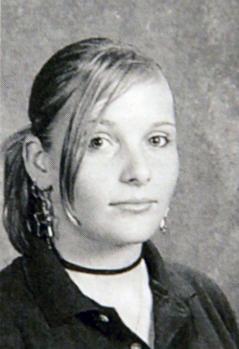|
|
|---|
Sunday, March 14, 2010
BUCHENWALD CONCENTRATION CAMP
On Sunday, April 15, 1945, in Studio B-4 of the British Broadcasting Company, CBS radio news reporter Edward R. Murrow broadcast his first-hand account of what he had seen at Buchenwald on April 12th, the day after the concentration camp was liberated by American troops.
The title of Edward R. Murrow's radio broadcast was
"They Died 900 Aa Day In "The Best" Nazi Death Camp"
On Sunday, April 15, 1945, in Studio B-4 of the British Broadcasting Company, CBS radio news reporter Edward R. Murrow broadcast his first-hand account of what he had seen at Buchenwald on April 12th, the day after the concentration camp was liberated by American troops.
The title of Edward R. Murrow's radio broadcast was
"They Died 900 Aa Day In "The Best" Nazi Death Camp"
One of the prisoners in the concentration camp had told him that in 1939 when Polish prisoners arrived in the camp without winter clothing, they died at the rate of 900 per day. Five different men in the camp, who had had experience in other Nazi camps, asserted that Buchenwald was the best of all the camps.
Edward R. Murrow's broadcast began with the following words:
"This is London."
"During the last week, I have driven more than a few hundred miles through Germany, most of it in the Third Army Sector Wiesbaden, Frankfurt, Weimar, Jena and beyond . . . . Permit me to tell you what you would have seen, and heard, had you been with me on Thursday. It will not be pleasant listening. If you are at lunch, or if you have no appetite to hear what Germans have done, now is a good time to switch off the radio for I propose to tell you of Buchenwald."
Edward R. Murrow's broadcast began with the following words:
"This is London."
"During the last week, I have driven more than a few hundred miles through Germany, most of it in the Third Army Sector Wiesbaden, Frankfurt, Weimar, Jena and beyond . . . . Permit me to tell you what you would have seen, and heard, had you been with me on Thursday. It will not be pleasant listening. If you are at lunch, or if you have no appetite to hear what Germans have done, now is a good time to switch off the radio for I propose to tell you of Buchenwald."
"It is on a small hill about four miles outside Weimar, and it was one of the largest concentration camps in Germany, and it was built to last . . ."
In his introductory remarks, Murrow said that as he approached the camp, he saw about 100 men dressed in civilian clothes with rifles. There were a few shots and when he stopped to inquire, he was told that the prisoners "had some SS men cornered." Later in the broadcast, he mentioned that French prisoners had shot 3 of the SS soldiers who had been guarding the camp, and had taken one prisoner.
"And now, let me tell this in the first person, for I was the least important person there, as you shall hear."
"There surged around me an evil-smelling stink, men and boys reached out to touch me. They were in rags and the remnants of uniforms. Death already had marked many of them, but they were smiling with their eyes. I looked out over the mass of men to the green fields beyond, where well-fed Germans were ploughing...."
"I asked to see one of the barracks. It happened to be occupied by Czechoslovakians. When I entered, men crowded around, tried to lift me to their shoulders. They were too weak. Many of them could not get out of bed. I was told that this building had once stabled 80 horses. There were 1200 men in it, five to a bunk. The stink was beyond all description."
"They called the doctor. We inspected his records. There were only names in the little black book - nothing more - nothing about who had been where, what he had done or hoped. Behind the names of those who had died, there was a cross. I counted them. They totaled 242 - 242 out of 1200, in one month."
"They called the doctor. We inspected his records. There were only names in the little black book - nothing more - nothing about who had been where, what he had done or hoped. Behind the names of those who had died, there was a cross. I counted them. They totaled 242 - 242 out of 1200, in one month."
"As I walked down to the end of the barracks, there was applause from the men too weak to get out of bed. It sounded like the hand clapping of babies. The doctor's name was Paul Heller. He had been there since 1938."
"As we walked out into the courtyard, a man fell dead. Two others, they must have been over 60, were crawling toward the latrine. I saw it, but will not describe it."
"In another part of the camp they showed me the children, hundreds of them. Some were only 6 years old. One rolled up his sleeves, showed me his number. It was tattooed on his arm. B-6030, it was. The others showed me their numbers. They will carry them till they die. An elderly man standing beside me said: "The children- enemies of the state!" I could see their ribs through their thin shirts."
"The old man said, "I am Professor Charles Richer of the Sorbonne." The children clung to my hands and stared. Men kept coming up to speak to me and to touch me, professors from Poland, doctors from Vienna, men from all Europe. Men from the countries that made America."
"As we walked out into the courtyard, a man fell dead. Two others, they must have been over 60, were crawling toward the latrine. I saw it, but will not describe it."
"In another part of the camp they showed me the children, hundreds of them. Some were only 6 years old. One rolled up his sleeves, showed me his number. It was tattooed on his arm. B-6030, it was. The others showed me their numbers. They will carry them till they die. An elderly man standing beside me said: "The children- enemies of the state!" I could see their ribs through their thin shirts."
"The old man said, "I am Professor Charles Richer of the Sorbonne." The children clung to my hands and stared. Men kept coming up to speak to me and to touch me, professors from Poland, doctors from Vienna, men from all Europe. Men from the countries that made America."
"We went to the hospital. It was full. The doctor told me that 200 had died the day before. I asked the cause of death. He shrugged and said: "tuberculosis, starvation, fatigue and there are many who have no desire to live. It is very difficult." Dr. Heller pulled back the blanket from a man's feet to show me how swollen they were. The man was dead. Most of the patients could not move."
"I asked to see the kitchen. It was clean. The German in charge had been a Communist, had been at Buchenwald for nine years, had a picture of his daughter in Hamburg. He hadn't seen her for twelve years, and if I got to Hamburg, would I look her up? He showed me the daily ration one piece of brown bread about as thick as your thumb, on top of it a piece of margarine as big as three sticks of chewing gum. That, and a little stew, was what they received every twenty-four hours. He had a chart on the wall; very complicated it was. There were little red tabs scattered through it. He said that was to indicate each ten men who died. He had to account for the rations, and he added, "We're very efficient here."
"We went again to the courtyard, and as we walked we talked. The two doctors, the Frenchman and the Czech, agreed that about six thousand had died during March. Kersheimer, the German, added that back in the winter of 1939, when the Poles began to arrive without winter clothing, they died at the rate of approximately nine hundred a day. Five different men asserted that Buchenwald was the best concentration camp in Germany; they had some experience with the others."
"Dr. Heller, the Czech, asked if I would care to see the crematorium. He said it wouldn't be very interesting because the Germans had run out of coke some days ago and had taken to dumping the bodies into a great hole nearby. Professor Richer said perhaps I would care to see the small courtyard. I said yes. He turned and told the children to stay behind. . . . We proceeded to the small courtyard. The wall was about eight feet high; it adjoined what had been a stable or garage. We entered it."
"It was floored with concrete. There were two rows of bodies stacked up like cordwood. They were thin and very white. Some of the bodies were terribly bruised, though there seemed to be little flesh to bruise. Some had been shot through the head, but they bled but little. All except two were naked. I tried to count them as best I could and arrived at the conclusion that all that was mortal of more than five hundred men and boys lay there in two neat piles."
"There was a German trailer which must have contained another fifty, but it wasn't possible to count them. The clothing was piled in a heap against the wall. It appeared that most of the men and boys had died of starvation; they had not been executed."
"But the manner of death seemed unimportant. Murder had been done at Buchenwald. God alone knows how many men and boys have died there during the last 12 years. Thursday, I was told that there were more than 20,000 in the camp. There had been as many as 60,000. Where are they now?"
"Dead men are plentiful in war, but the living dead, more than 20,000 of them in one camp. And the country round about was pleasing to the eye, and the Germans were well-fed and well-dressed."
"I pray you to believe what I have said about Buchenwald. I reported what I saw and heard, but only part of it. For most of it, I have no words."
"If I have offended you by this rather mild account of Buchenwald, I'm not in the least sorry...."
"Dead men are plentiful in war, but the living dead, more than 20,000 of them in one camp. And the country round about was pleasing to the eye, and the Germans were well-fed and well-dressed."
"I pray you to believe what I have said about Buchenwald. I reported what I saw and heard, but only part of it. For most of it, I have no words."
"If I have offended you by this rather mild account of Buchenwald, I'm not in the least sorry...."
0 Comments:
Subscribe to:
Post Comments (Atom)
























